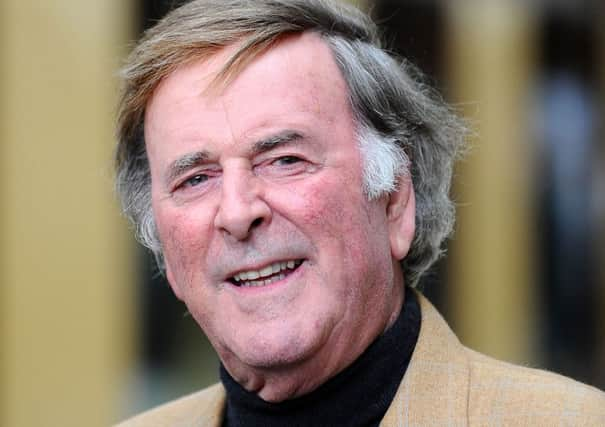Jayne Dowle: Sir Terry Wogan and what he taught us about the art of good radio


It’s said that all excellent broadcasters share one quality. And that’s the ability to talk to millions of people as if they were a friend sat next to you having a chat over a cup of tea.
If anyone typified this, it was Terry Wogan. When I started doing a bit of radio myself – I’m a regular guest on BBC Radio Sheffield – I tried to imagine how I might be able to pull this off. It’s not half as easy as it looks, especially in a live situation.
Advertisement
Hide AdAdvertisement
Hide AdYet Sir Terry did it – day in and day out – for decades. He was a natural. He once admitted that he didn’t really prepare for his programmes. He just got out of the lift, switched on the microphone and waited to see what would happen.
What a refreshing contrast to the luvvies we hear angsting about “their art”. What a relief from the attention-seeking collective shouting of what is known, for obvious reasons, as “zoo radio”.
By all accounts, Sir Terry was a modest man. Few realised just how ill he was when he failed to present the annual BBC charity fund-raiser Children in Need last year. Even his close friends were amazed to discover he had been suffering from cancer. It came as a shock then to hear the news that he had passed away at the age of 77, surrounded by his wife Helen and their three children.
Almost immediately though, the tributes from fellow broadcasters, entertainers and even the Prime Minister came pouring in. David Cameron said that “his charm and wit always made me smile”. For one savaged by the intellectual attack dogs of Radio 4 more times than he probably cares to remember, the soft Limerick tones of Wogan must have come as soothing balm. Indeed, I am sure that many of us took our own moment to think quietly about the man who has been part of the soundtrack of our lives for so long.
Advertisement
Hide AdAdvertisement
Hide AdHowever, the most touching tributes have been from Sir Terry’s fellow broadcasters. Radio is an unforgiving medium. I’m not just talking about the challenge of talking live on air for hours at a time. Fall foul of your peers, or the listening public, and you’re ostracised, as Jonathan Ross and Russell Brand found out in 2009, when they caused distress to Fawlty Towers actor Andrew Sachs in a tasteless skit about his grand-daughter. So for Wogan’s Radio 2 colleague Jeremy Vine to describe him as “probably the greatest broadcaster since the invention of the microphone” means a great deal.
Wogan could be funny. Far, far funnier than both Ross and Brand put together. You only had to listen to his commentary of the Eurovision Song Contest which he did for years before passing the baton to Graham Norton to understand this.
I’m a great fan of the absurdity of this annual international jamboree with its dodgy outside broadcasts and even dodgier soft metal bands. I remember watching it in my twenties and laughing at Wogan’s razor-sharp sarcasm.
I found myself in hysterics at this middle-aged man with his fan-club of grannies. He could make a description of a pompous vocalist or a woman’s overblown gown hilarious with a few crisp words. In any medium, that is a rare talent.
Advertisement
Hide AdAdvertisement
Hide AdCould this really be the same person whose voice used to come meandering out of my auntie’s ancient Bush radio when I was a child? In those days, the early 1970s, he presented The Breakfast Show on Radio 2.
For people of my generation, Wogan typifies that time. I’ve seen publicity photographs of him dressed in flares and a rather jaunty neckerchief. However, he was never quite cool enough to be part of any “scene”. He was like an uncle who wanted to be hip and trendy but always fell short of the mark. This ability to not take himself too seriously endeared him to us though. We might cringe now at his rendition of The Floral Dance, a hit in 1978, or look through our fingers at old recordings of the BBC quiz show Blankety Blank, which he presented in the 1980s, but it is with the recognition that he is sending himself up, not the public.
Not for Sir Terry the egotistical aural assault that passes for entertainment on so many of our radio shows. He never tried too hard. He didn’t have to. Yet another Radio 2 colleague, presenter Simon Mayo, described him as a “radio genius”.
He said that “the staple of all great radio is the friend behind the microphone – and he was the ultimate friend behind the microphone”. And that’s true. The nation didn’t just lose another celebrity, another entertainer or a household name last Sunday. It lost a friend.